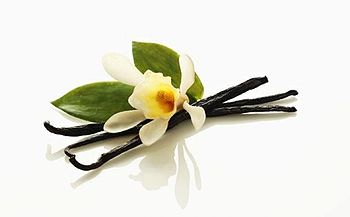Vanilla
From Wikiwel
Other Names : Bourbon Vanilla, Common Vanilla, Madagascar Vanilla, Mexican Vanilla, Réunion Vanilla, Tahitian Vanilla, Tahiti Vanilla, Vainilla, Vanilla planifolia, Vanilla tahitensis, Vanille, Vanille Bourbon, Vanille de Bourbon, Vanille de Madagascar, Vanille du Mexique, Vanille de Tahiti, Vanillin.
Vanilla is a plant. The bean (fruit) is commonly used to make flavoring, but it is also used to make medicine.
Special Precautions of Vanilla
- Vanilla sold in tourist markets around Mexico is sometimes not actual vanilla extract, but is mixed with an extract of the Tonka Bean, which contains coumarin. Tonka bean extract smells and tastes like vanilla, but coumarin has been shown to cause liver damage in lab animals and is banned in food in the US by the Food and Drug Administration since 1954.
- Vanilla is safe, but there are some side effects. Skin contact can cause irritation and swelling (inflammation). It might also cause headache and sleep problems (insomnia), especially for people who manufacture vanilla extract.
- Pregnancy and breast-feeding: Vanilla is safe for pregnant and breast-feeding women in food amounts. But larger medicinal amounts should be avoided until more is known.
Benefits and uses of Vanilla are
- to treat intestinal gas
- to teat fever.
- to increase sexual desire (as an aphrodisiac).
- Alleviates Anxiety : Vanilla became popular in 17th-century Europe for its sedation properties. Vanilla is an aromatic spice that benefits the nervous system, according to the UCLA Medicinal Spices Exhibit. The Memorial Sloan-Kettering Hospital in New York reported that some patients who suffer from claustrophobia were able to alleviate their symptoms when they were exposed to vanilla aromatherapy, according to HolisticOnline.com.
- Reduces Free Radicals : Vanilla contains high levels of antioxidants, according to a study led by B.N. Shyamala from the Spices and Flavour Technology Department of the Central Food Technological Research Institute in Mysore, India. Shyamala's study was published in a September 2007 issue of the "Journal of Agricultural and Food Chemistry." Antioxidants are valuable for reducing free-radicals in your body, which are the waste products from normal as well as harmful metabolic processes. Excess free radicals may cause diseases, including cancer.
- Cancer :
- vanillin has been shown to reduce the rate of mutations in cells or act as an antimutagenic agent. anillin was found in one study to affect 64 genes known to cause DNA damage, stress and oxidative damage, apoptosis (“cellular suicide”), and cell proliferation. Vanillin is involved in DNA replication and repair which inhibits mutagenic activity. It is therefore classified as a biological antimutagen for its ability to prevent harmful mutations
- Vanilla also contains properties that enable the body to inhibit angiogenesis − the formation of new blood vessels that feed tumors.
- Another compound found in vanilla called ethyl vanillin shows promise of helping to prevent the spread of cancer, particularly in the kidneys, liver, and lungs.
- It is also added to foods to reduce the amount of sugar needed for sweetening. Some people add vanilla to food to help stop tooth decay.
- Its extract contains small amounts of B-complex groups of vitamins such as niacin, pantothenic acid, thiamin, riboflavin and vitamin B-6. These vitamins help in enzyme synthesis, nervous system function and regulating body metabolism.
- contains small traces of minerals such as calcium, magnesium, potassium, manganese, iron and zinc. Potassium is an important component of cell and body fluids that helps control heart rate and blood pressure. Manganese and copper are used by the body as co-factors for the antioxidant enzyme, superoxide dismutase. Iron is essential for red blood cell production and as a co-factor for cytochrome-oxidases enzymes.
